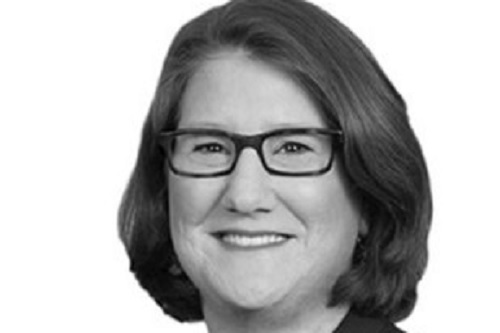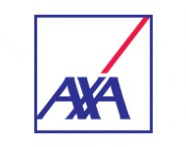Q&A with AXA XL Global Marine Chief Underwriting Officer Anne Marie Elder

Profitability in the marine insurance market has long been hobbled by insufficient rate and inefficient processes. But a new breeze is beginning to blow. Thanks to contracting capacity, more disciplined underwriting and a push for greater adoption of technology, the global marine insurance market could be poised for unprecedented growth. Although the long-term effects of COVD-19, a global recession, and ongoing trade disputes are unclear, several market research firm reports have pegged projected growth between now and 2024 at more than USD 8 billion.
AXA XL’s recently appointed Chief Underwriting Officer Anne Marie Elder for Global Marine division is ready to ride the wave. Elder previously helmed Marine for the North America region, where she expanded the company’s footprint in key markets, diversified its portfolio, advocated for greater utilization of AI and data analytics, and improved efficiency across the board.
As she takes on her new role, Anne Marie is focused on how the marine industry’s top risks and trends may impact AXA XL and its brokers and clients. Our Fast Fast Forward team spoke with her about her plans for AXA XL’s global marine business. Here’s what Anne Marie had to say.
Q: The marine market began to harden after years of severe losses and is now projected to grow by billions over the next few years. What is driving that continued growth?
AME: The marine market is very much tied to the global economy -- imports and exports are what keep the ships moving — and prior to COVID-19 goods were moving at a steady rate. The downturn due to the pandemic, however, will likely cause premiums to dip. Whether that rallies quickly will depend, in part, on how quickly the economy bounces back.
The other factor driving growth is that underwriters are starting to push for more rate. We’ve had a decade of rate reductions, which is simply not sustainable. Some of the least profitable Lloyd’s syndicates started cutting back and exiting this space in 2019 in response to a demand for improved performance.
A decrease in capacity, combined with large industry losses, have been catalysts to drive much-needed rate and improved terms and conditions.
Q: What are the chief risks facing the marine insurance industry today? How are they evolving?
COVID-19 is the chief risk at the moment due to the downturn in trade, but decreased demand has resulted in an accumulation of vessels and cargo at ports and storage facilities.
Take oil as an example. Surplus oil awaits at a port or in storage until the demand returns or is sold at a lower price. Similarly, we’re seeing vessels like cruise ships sit idle at ports in Florida. Exposure accumulation in any one area creates more risk than underwriters originally contemplated.
Cyber risk is a growing concern as vessels adopt more technology. Ships are increasingly using advanced technology for everything from navigation, stability and cargo loading/unloading. Autonomous vessels, while not mainstream yet, will present significant exposure. The industry is starting to take cyber risk seriously and the coverage uptake will increase over time.
More traditional risks include shipboard fires, port explosions, ship groundings, and natural catastrophes. Those events have driven increased losses in the past few years.
Q: What opportunities do you see in the industry for greater utilization of technology? Are there any new solutions you’re excited about?
Historically, marine has a higher expense ratio than some other areas of insurance. The profit just hasn't been there to support the returns. Up to now, marine has been slow to adopt data analytics due to a heavy emphasis on underwriting unique exposures and providing customized policy language. Providing marine insurance needs to be an art… and a science.
The value of data is indisputable. Lloyd's is seeking greater operational efficiency; the rest of the market must follow their lead to regain profitability. If we can correlate data with propensity for loss, we can outmaneuver our competition and deliver better than average returns.
Partnering with Insurtech companies has enabled us to leverage analytics and automation seamlessly. We recently worked with Vindati.com, which automatically quotes, binds and issues policies for cargo risks under $10,000. Smaller accounts tend to be very profitable, but it’s not a space we’ve historically targeted due to operational intensity. This partnership enables us to enter that market efficiently and boost our returns.
Providing marine insurance needs to be an art… and a science.
Q: What would you say has been the greatest challenge transitioning to the CUO role? On the other hand, what are you most excited about achieving?
My biggest challenge will be learning the nuances of local insurance markets around the globe. The way that we transact business in North America may not apply to other countries, such as Germany or France or Singapore. I plan on getting up to speed as quickly as possible
The global team has done tremendous work to right-size the underperforming sectors of our business and position us to take advantage of this growing market. In many respects, we were ahead of the market. I'm looking forward to seeing this work manifest itself in the business results.
Q: What goals are you targeting in your first few years as CUO?
The overriding goal is the execution of our target operating model in collaboration with each region. I plan to deploy the same strategy globally that I pursued in North America: balance our portfolio, increase efficiency and maximize our profit.
Q: You have been dedicated to driving greater diversity and inclusivity in the industry, sponsoring such business resources groups, like PRIDE at AXA XL. What has been the most rewarding part of these efforts for you?
I am very passionate about Inclusion and Diversity because I came from the school of hard knocks, so to speak, not feeling like I was able to be myself in the workplace for many years. When I did come out as a gay woman, it had a dramatic effect on how I felt about coming to work, my quality of work, and the depth of relationships I was able to develop that was lacking before.
I know firsthand how your career can be impaired by feeling like you can’t bring your whole, true self to work, so I’m very open about my experiences and try to create an environment of inclusivity. Especially in the male-dominated marine market, I feel an obligation as a woman and as a gay person to be the best leader I can be so people know you can work hard and get to the top without sacrificing your identity.
I’ve had people tell me they read about my experience, and it helped them be supportive when people close to them came out. I’ve had people come out to me for the very first time at work. I’ve had people tell me that my example let them know it’s possible to succeed. Seeing in real terms that I'm making a difference in someone’s life has been amazing.
Authored by AXA XL
About AXA XL
AXA XL is the P&C and specialty risk division of AXA which provides property, casualty, professional and speciality products to industrial, commercial and professional firms, insurance companies and other enterprises, here in the UK and throughout the world. With underwriting teams based in the US, UK, EMEA and Asia Pacific regions, we can make decisions close to the markets you serve and work with you to tailor cover to your business needs.
We help businesses adapt and thrive amidst change. Rather than just paying covered claims when things go wrong, we go beyond protection into prevention so your business can go beyond the unexpected.

